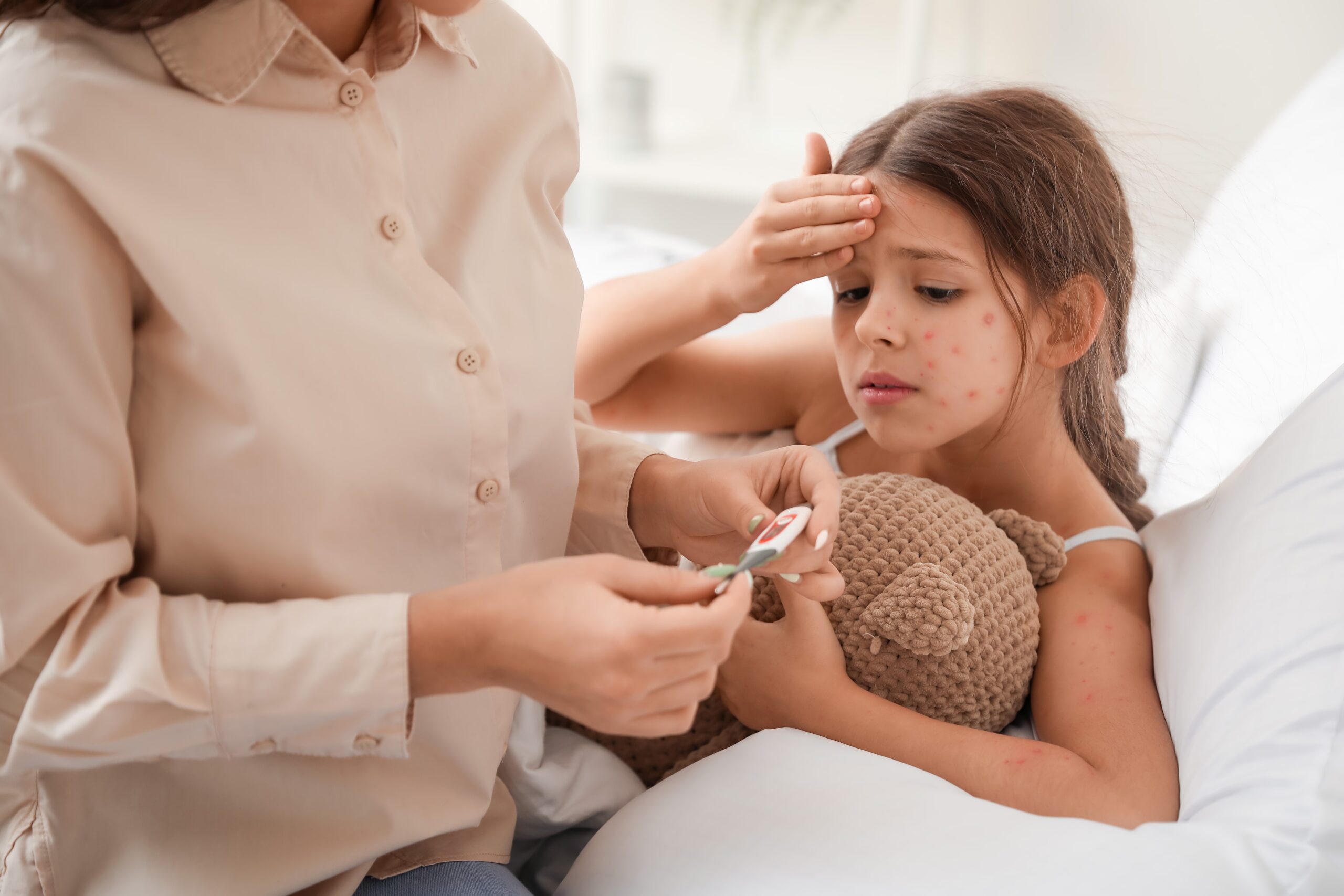This article appeared in Yahoo! News. Read more here.
Chickenpox vaccines have virtually wiped out severe complications and deaths in American children from the highly contagious virus, a new report finds.
Chickenpox —which is caused by the varicella-zoster virus, a type of herpes virus — was considered just a normal part of growing up until the vaccine became available in 1995. Since then new U.S. cases of the disease among those under age 20 have been cut by 97 percent, hospitalizations by 94 percent and deaths by 99 percent as of 2019, according to an analysis of national databases released Thursday by the Centers for Disease Control and Prevention.
The chickenpox vaccine implementation is “a tremendous achievement,” said the study’s lead author, Dr. Mona Marin, a medical epidemiologist at the CDC’s National Center for Immunization and Respiratory Disease. An estimated 90.3% of children have been vaccinated against chickenpox by age 2, according to the CDC.
“The high vaccination coverage the country has achieved has led to a huge decline in cases, from 4 million per year” to around 150,000, Marin said. The chickenpox vaccination program has also saved the U.S. about $1 billion per year in medical costs and lost work due to parents having to stay home with sick children, according to CDC estimates.
Deaths in kids, which had been as high as 150 per year, have been “practically eliminated,” Marin said. Between 2012 and 2016, there were no deaths in those younger than 20, according to Marin.
The CDC recommends two doses of chickenpox vaccine for children, teens and adults who have never had the disease.
The chickenpox vaccine program “is a great success story,” said Dr. Leonard Krilov, chair of pediatrics and chief of the division of pediatric infectious diseases at the NYU Long Island School of Medicine and NYU Langone Hospital, Long Island.
Prior to the vaccine, there were 10,000 to 13,000 hospitalizations and 100 to 150 deaths in the U.S. each year, Krilov said.
Chickenpox is generally considered a mostly mild disease without lasting effects, said Dr. Jason Zucker, an infectious disease expert and an assistant professor of medicine at the Columbia University Vagelos College of Physicians and Surgeons.
“But for a small percentage of people the disease can be deadly,” he said. “Being able to reduce the rate of new cases by 97 percent is amazing, and it shows how effective vaccines can be.”
Pregnancy or being immunocompromised are high risk factors for serious illness from the disease. In the pre-vaccination period an estimated 200 pregnant women were hospitalized each year, said Marin. “In 2018 and 2019, there were just three or four.”
Maternal infection can lead to severe complications for babies, including blindness, deafness, limb deformity and death, Marin said.
No more shingles?
There could be another unexpected and longterm benefit from the huge drop in new chickenpox infections — significantly less risk of developing shingles.
Although there won’t be any data for a while since the vaccine is relatively new, the researchers suspect that the risk of shingles in older adults will be greatly diminished.
Chickenpox and shingles are caused by the same virus, which can hide in the body for years and be reactivated causing a painful, blistering, burning rash.
While most cases currently occur in older adults, kids and teens sometimes develop shingles.
“We have data for people up to age 25 and we see the rate of reactivation of the virus is much lower in children and adolescents who have been vaccinated,” said Marin. “So we anticipate the lower risk of shingles will ultimately extend to the entire population.”
The chickenpox vaccine is a success story, “one in which the U.S. pioneered,” said Dr. William Schaffner, a professor of infectious disease at the Vanderbilt University Medical Center. “Our CDC advisory committee was the first country’s advisory committee to recommend widespread use of the chickenpox vaccine.”
However, Schaffner was cautious about the good news.
“We have to keep vaccinating to maintain those benefits,” he said. “Otherwise the disease will come back since it still exists around the world.”

